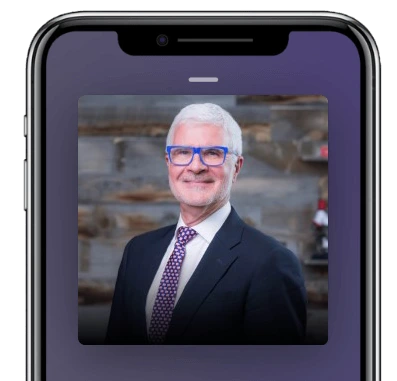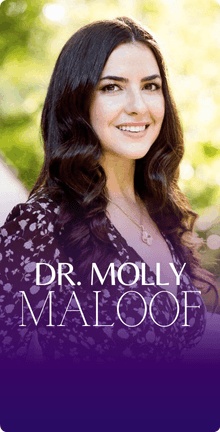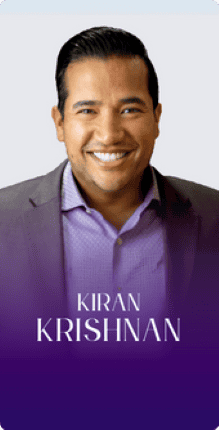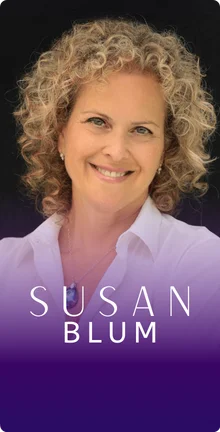In this Episode
- [02:44]Stephan welcomes Dr. Steven Gundry to the podcast and talks about Dr. Grundy’s life-saving technology for heart surgery.
- [05:20]Dr. Gundry credits serendipity for his success, citing instances where the right people and research converged to make his mission happen.
- [08:52]Dr. Gundry shares how he ended up writing books and documenting the success of his approach, mentioning ‘Big Ed,’ who had inoperable coronary artery disease.
- [17:20]Dr. Grundy emphasizes the importance of avoiding lectins in the diet to prevent cardiovascular disease.
- [24:11]Dr. Gundry explains the impact of gut microbiome on Alzheimer’s disease.
- [26:29]Dr. Gundry shares insights from his new book “Gut Check” and the importance of the microbiome in transforming mental, physical, and emotional health.
- [29:18]Dr. Grundy discusses toxoplasmosis and reveals paradoxical findings about plants, longevity, and nutrition.
- [39:14]Dr. Gundry explains that retraining the immune system is possible after healing a leaky gut.
- [45:35]Here’s how to visit Dr. Gundry’s website and listen to his podcast for more information.
Dr. Gundry, it’s so great to have you on the show.
Thanks, Stephan. It’s good to be here.
Let’s start a little bit with how you just created something so profound and powerful in your field, and that is some life-saving technologies that are in use today. I’ve been researching you, and I forget the name of the device, but it helps heart surgery be as least invasive as possible. What is that, and how did you come up with that?
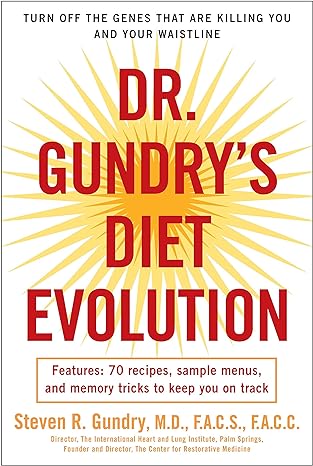
The biggest one of my devices is the Gundry Retrograde Cardioplegia Cannula. I was a fellow at the National Institutes of Health (NIH) long ago in heart surgery and spent some time in the lab researching how you could keep a heart preserved while you were having a heart attack. Obviously, blood flow was closed off in an artery, but some veins had no blockages.
Some old research suggested that you could salvage areas of the heart by pumping blood backward in the veins during a heart attack. A few of us were researching this, and I got interested in that and showed that it could be done. When I returned to the University of Michigan, where I was in training as a heart surgery fellow, one of my mentors, Marvin Kirsh, when I showed him this, said, “That’s a stupid idea. That’s not going to go anywhere. But why don’t you do it to put protective agents in the heart during heart surgery for blocked coronary arteries because we don’t have any good way of protecting it?”
I said, “Okay.” He says, “If you do that, I’ll let you have a lab to do it.” I said, “Okay.” That’s actually where it started. It’s still the most widely used device to protect the heart during heart surgery.
Wow. That’s amazing. When you have a mission or soul quest to do in this life. The universe conspires to make it happen and puts the right people in your path. You happen across the right research or hear the right conversation in the background, and everything falls into place. Did that feel like that to you?
I’m a big believer in serendipity. A lot of the things that have happened in my career, I wouldn’t be here if I hadn’t been there. I think that’s very true.
If you have a leaky gut, you have a leaky brain. Share on XI recently learned in the last year or two that the term synchronicity comes from a very respected source. Carl Jung coined that term. It’s something that he researched and put an entire book together on after an episode of synchronicity in his clinic. Do you know the story?
No, let’s hear it.
It’s fascinating. He was doing a psychoanalysis on a patient. She was doing a dream recall, and in the middle of it, he was getting a tap on the window, which was insistent and incessant. It was just going and going. He finally got up and checked to see what was going on. The thing is, he was three stories up, so it couldn’t have been a person. It just didn’t make any sense. He opened the window to see what it was: a beetle.
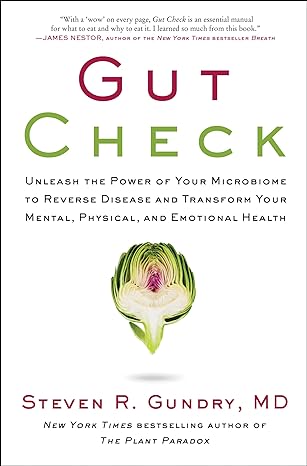
The dream recall at the moment was about a scarab necklace that the woman was wearing in the dream, which was quite significant. “Here was the scarab beetle.” He caught it and presented it to the lady, and she was just blown away by it.
Of course, it changed how she saw reality and how he heeded. That started him on his whole quest to study synchronicity. Have you had anything like that happen? There’s something which, like, “The odds of it happening just don’t compute.” It seems like it was destined to be orchestrated in the heavens.
All the time. I reconnected with my current wife by doing a baby heart transplant in 1995. I was famous for doing that and did at least one every week back in those days. We did one baby heart transplant, and it got picked up by the Today show. Bryant Gumbel interviewed me.
I won’t drag this on, but I was supposed to get married to my wife long ago in 1975. Let’s just say it didn’t work out because I was in medical school in Georgia, and my wife was here in Santa Barbara, California. She wouldn’t move to Georgia, and I wouldn’t move to California. Fast forward, I was in California as a professor, where I said I’d never move to, and my wife was watching her TV in Atlanta, Georgia, where she said she would never move to and just happened to see me on TV.
Next thing you know, she sent me a note saying, “Hey, you always said you were going to be a famous heart surgeon. Congratulations.” The next thing we knew, we were on a plane and had not been separated for 28 years.
Is that a story that you ever share?
One of a plant’s defense systems against being eaten is a protein called lectins, which are designed to cause leaky gut.
All the time. I still have her business card in my wallet to flip out when anyone is interested. It gets better, but yeah, it’s those sorts of things that always interest me.
Yeah, magic. How did you go down this path of authoring all these books? You have a number of them now. It’s quite a life change for you from doing surgery.
I was very famous for protecting the heart during heart surgery because of my inventions. I was famous for operating on people who nobody else wanted to operate on. There’s always a handful of surgeons that will take on a case that I guess we’re cocky enough to think we can pull it off. I was a professor and chairman at Loma Linda University for a number of years, and I met a guy who I call ‘Big Ed’ in all my books. He was a real guy from Miami, Florida. He was 48 years old, a big fat guy. I call him Big Ed for a reason.
He had inoperable coronary artery disease. That means that he had so many blockages that you couldn’t put stents in them. You couldn’t do bypasses because there wasn’t any place to land to bypass. Everything was full of crud. Like many people, he went around the country to various centers with his angiogram, the movie of his heart, and everybody turned him down everywhere he went.
This went on for, I guess, about six months, and he wound up in my office looking at his angiogram and said, “I’m going to love to help you. I have to agree with everybody else. There’s nothing I can do for you.” He says, “Well, look, I’ve been going around the country for six months. I’ve been on a diet, and I lost 45 pounds.” This guy was 265 pounds when I met him, but he lost 45 pounds. He says, “I went to a health food store, and I’ve been taking all these supplements,” and he has a big shopping bag full of supplements. He says, “Maybe I did something here.”
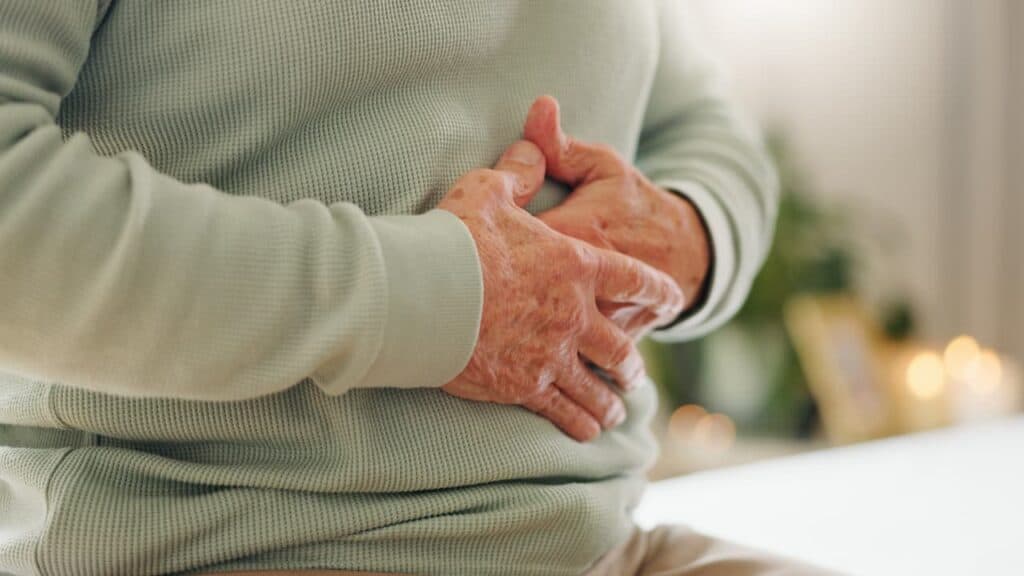
I’m scratching my professor’s beard, going, “Good for you for losing weight, but it won’t do anything here. I know what you did with all those supplements. You made expensive urine,” which I firmly believed back then. He says, “Well, what the heck, I’ve come all this way. What would it hurt to get another angiogram or another cardiac catheterization?”
I’m going, “Okay.” We got another angiogram of the guy. In six months, it’s cleaned out, and 50% of the blockage in his heart is gone. Now that’s impossible. It cannot be done. Yet I’m staring at his old film, and I’m staring at his new film, and I’m going, “Wait a minute, tell me about this diet.” He starts telling me what he’s eating and talks about serendipity.
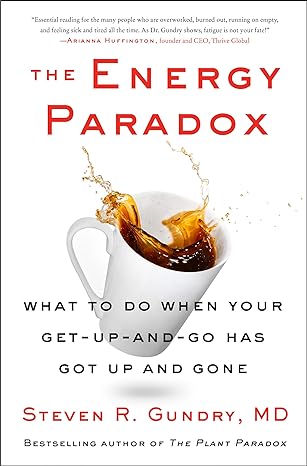
As undergraduates at Yale in the dark ages, we were able to design our major and do a master’s thesis. My major was you could take a grade A, change its food supply and environment, and arrive at a human being. I defended my thesis, got an honors, and gave it to my parents, and went away and became a famous heart surgeon.
As Big Ed told me what he was eating, I went, “That’s my thesis of what early man ate. Let me see those supplements.” Well, I was famous for keeping hearts alive during heart surgery or for heart transplants, and I was putting a bunch of interesting things in this cardioplegia and this preservation fluid to keep the heart cells alive.
He was swallowing many of them, and they were in his bag of supplements. I went, “I never thought about swallowing these things.” I was a big fat guy. I ran 30 miles a week, went to the gym one hour a day, and ate a healthy, low-fat diet because that’s what heart surgeons do. I had arthritis, I had high blood pressure, I had pre-diabetes, I had migraine headaches when I did baby heart transplants—terrible cholesterol profile.
I called my parents and said, “Hey, do you still got my thesis?” They said, “Yeah, got it.” They sent it to me. I started taking a bunch of supplements, and I dropped 50 pounds in my first year. I lost another 20 pounds subsequently. All my problems went away. High blood pressure went away. Pre-diabetes went away, and my cholesterol and my arthritis went away.
When I operated on people at Loma Linda, I would put them on my program so that they would never have to come back and see me again because we do a lot of reoperations, and lo and behold, their issues would resolve, their diabetes would go away, their arthritis would go away.
The gut microbiome controls our hunger, mood, and behavior. Share on XAfter about a year of doing this at Loma Linda, I had a really bad idea one Friday morning on the way to work. I went, “I got this all wrong. I shouldn’t operate on people and teach them how to eat to avoid me later. I should teach them how to eat so we never have to operate on them in the first place.”
Now, for a heart surgeon, that’s a very dumb idea. However, I resigned from my position at the height of my career and set up a clinic in Palm Springs, just down the road from Loma Linda. The researcher in me said, “Hey, I’d like to tell you which foods to eat and which foods not to eat.”
I want to send you to Costco, Trader Joe’s, or the health food store. There wasn’t an Amazon back then, so I had to get some supplements. “I want to do blood work on you every three months that insurance or Medicare will pay for, and let’s see what happens.” People were nice enough to do that, and we started publishing and documenting that. “This was working,” and we saw it all the time. That’s what happened.
Amazing.
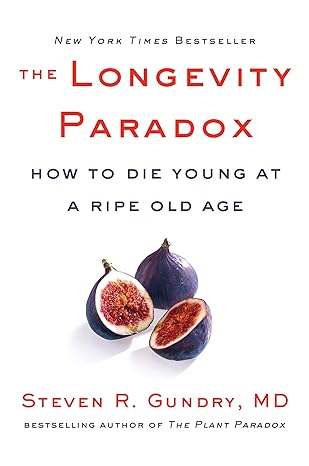
It was a really stupid idea. You don’t make a lot of money teaching people how to eat. My wife and I had some interesting hard times. But my wife kept saying, “If you got to do this, you got to do this. No backing.” Anyway, in the end, it turned out fine.
It always does. Did somebody come to you needing heart surgery, and you put them on a diet, and then right before surgery, you found they didn’t need the surgery anymore, so you could avoid that, or was this always after the fact?
That’s what I do now, and I publish studies of people who have known heart disease with stents or bypass surgery, which we’ve managed now for ten years and over a thousand patients. At the end of ten years, there’s a 2% incidence of a new cardiovascular event, versus if you follow people with traditional medical therapy, there’s about a 50% incidence of a new cardiovascular event in five years—a rather different outcome.
We’ve had people I’ve had ready to go into surgery, and I always check with them and say, “Okay, you’re ready. We’re going to come through.” I had a gentleman over 20 years ago who said, “No, I don’t think I will make it. I can’t go through with this. Isn’t there an alternative?”
I said, “Well, if you do what I ask, I promise I will never have to operate on you.” He said, “You mean it?” I said, “Yeah, I mean it.” That was 20 years ago, and I still see him twice a year. He never needed an operation, and he has normal coronaries now. He’s a happy guy. I’m a happy guy.
Wow. I know there’s something in the normal diet that people consume a fair amount of, and you’re very anti, and that’s lectins. Can you talk about that for our listeners? Why is it such a problem, and what else must they avoid besides lectins?
A lot of this was based on my research as an undergraduate at Yale, looking at how our diet evolved. One of the things that’s interesting is we were plant eaters. That’s where we came from. We have a really good microbiome. All the hundred trillion bacteria that live in our gut have evolved to handle and eat the various food compounds in our diet.
Just as an example, some bacteria like to eat gluten and can detoxify gluten, which happens to be lectin. Plants, on the other hand, plants have defense systems against being eaten. One of the plants’ defense systems against being eaten, or their babies, their seeds being eaten, is these proteins called lectins.
Lectins are designed to cause leaky gut, and the mechanisms have been well researched now by, among other people, Dr. Alessio Fasano, who’s now at Harvard, showing how gluten causes leaky gut. None of us ever ate a grain or a bean until 10,000 years ago when agriculture started. They were very new forms of lectins in our diet.
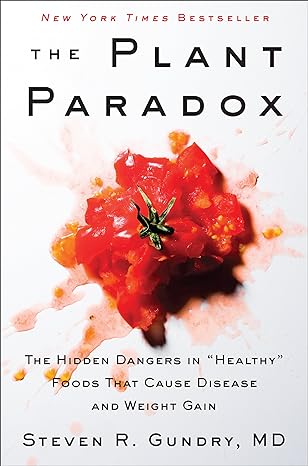
Fast forward again, all of us from Africa, Europe, or Asia had never encountered a plant from North or South America until 500 years ago when Columbus started the Columbian trade, and these are all new to our immune system and gut. They include nightshades like tomatoes, potatoes, peppers, and eggplant.
We’re very poorly equipped to handle these new foods. When we look at people’s profiles of the foods they’re sensitive to, these foods show up repeatedly. Interestingly, traditional cultures have always found ways to detoxify lectins by fermenting, soaking, peeling, and deseeding tomatoes or peppers.
The Southwest American Indians who relied on peppers always charred their peppers, peeled them, deseeded them before they ate them or ground them into chili powder. The Italians did not eat tomatoes for 200 years after their native son Columbus brought them back because they knew how deadly they were. Italians always peel and deseed tomatoes before they make tomato sauce.
My grandmother on my mother’s side was French, and she always made my mother peel and deseed tomatoes before she served a sliced tomato to us. That part, unfortunately, is well undocumented. For instance, the Incas always fermented their quinoa. They let it rot, then cooked it, and it’s not in the package directions.
I go around trying to figure out how everybody knew all this, and I spent 25 years now trying to figure out how Hippocrates knew 2500 years ago that all disease begins in the gut, and the guy was right. I write my books; I’m figuring out how Hippocrates knew all this, and with every passing year, I get closer, so I’ll write another book about what I learned in the last couple of years. I still see patients six days a week. I see patients on Saturdays and Sundays.
I only don’t see patients on Fridays when I’m at Gundry MD, in LA. Why do I do that? Because every one of them teaches me something, I’m still a kid in a candy store, which is a bad analogy.
What would be something that you learned from a patient recently?
Most of the time in the US, we see people with low thyroid. Certainly, we’ve had an epidemic of Hashimoto’s Disease.
Here’s a good example. I knew this, but I had it confirmed. I had a patient who had some abnormal thyroid numbers. Most of the time in the United States, we see people with low thyroid. Certainly, we’ve had an epidemic of Hashimoto’s thyroiditis, which is an autoimmune attack on the thyroid. Usually, in my clinic, my PA sees the patient for the first time, and then I see them in three or six months on their return visit.
I had this woman who had come with Hashimoto’s thyroiditis, and we can do blood markers of usually the two markers for Hashimoto’s. We can also look at markers for leaky gut, which she had. I saw her labs before I was due to see her, and then I saw that Hashimoto’s markers were gone, they were normal, and her leaky gut was no longer leaky.
When she introduced herself, I’ve read my PA’s notes. She said, “I have Hashimoto’s thyroiditis.” I said, “No, you don’t.” She looked at me and said, “You probably should have read my chart.” I said, “Well, yeah, actually, I did read your chart. You did have Hashimoto’s, but you don’t anymore.” She says, “What are you talking about? You can’t get rid of Hashimoto’s.” I said, “I think that’s why you were here.”
I showed her her labs, and she burst out crying. She did not think that this was possible, and I wouldn’t have thought this was possible. I published studies showing that 90%–94% of people will resolve their autoimmune disease in nine months to a year by following our program. Not bad.
I’m curious about the connection between Alzheimer’s, gut microbiome, and diet. I’m curious if, for example, your diet can change or reverse the symptomatology of Alzheimer’s, maybe even plaque formation. Is that something that you’ve seen?
Yeah. So it all depends on timing. I’ve become good friends with Dr. Dale Bredesen and Dr. David Perlmutter. I think we all agree that Alzheimer’s comes from the gut and is not a brain-specific problem. Amyloid proteins are produced in the gut and then travel to the brain. If you have a leaky gut, you have a leaky brain, and that’s part of what the new book talks about.
Our health, whether good or bad, is controlled by our gut microbiome. Share on XAlso, if we have a leaky gut, 80% of all of our immune system lines the gut. That immune system is there, among other things, to alert the bodyguards of the brain, the glial cells, that potential trouble is on the way and to take action. These glial cells will eat the dendritic processes of neurons to save the neuron’s life.
Depending on how much neuroinflammation is going on and how much has been damaged, you can stop the process, and it won’t progress. If we catch it early, then you can grow new dendritic processes. We’ve seen patients with early Parkinson’s in their 30s and 40s with severe tremors reverse their tremors and stop and reverse their Parkinson’s. I have to be honest with you, Dale’s honest with you, and David, once you get to a certain point, the cat’s out of the bag, and it’s not reversible, but the game’s objective is to stop it early on. Then it’s pretty amazing.
Is that something that you address in the new book, Gut Check?
Yeah.
I actually read recently about a study where they took gut bacteria from humans with Alzheimer’s, implanted that bacteria and transferred it into mice. I think it was mice, but some sort of lab animals, and they developed the symptoms of senility or dementia. That was crazy stuff.
Part of the book is to convince people that almost everything that will happen to us, good or bad, is controlled by the gut microbiome, how diverse they are, and the species there. Many people don’t want to hear it because we think we’re the most important, highest life form ever, and the idea that single-celled organisms could control most of what happens to us hurts our ego. We are very symbiotic organisms and are home to our gut bacteria. They would love us to stick around.
If we have a leaky gut, 80% of all of our immune system lines the gut to alert the bodyguards of the brain, the glial cells, that potential trouble is on the way.
Unfortunately, we’ve done everything in our power to destroy them, to starve them. I go through in the book how we’re good at killing our microbiome, starving our microbiome. It’s no wonder that a lot of this happens. We know that the microbiome controls our hunger and mood. We know that people with major depression or major anxiety have a different microbiome than people who are not depressed.
We know we can like in animal studies, take the microbiome from depressed individuals and feed it to rats or mice, and they’ll get depressed. There were studies done on humans back in the 1930s when people were institutionalized for depression. They gave them enemas and then gave them fecal enemas from happy people, and their depression resolved. Everything stems from the microbiome.
If somebody is sugar addicted and their microbiome, almost like bacteria, is transferred into someone healthy and maybe low-carb, will that person start showing some of the symptoms like a pre-diabetic?
Absolutely. In fact, I referenced a very famous article published in a previous book in the British Medical Journal. There was a woman marathoner in England who was thin and healthy, and she developed a colonic infection called C. difficile. The standard treatment, if you can’t reverse it, is to do a fecal enema.
When fecal enemas are used overseas, they’re technically illegal in the United States because of the FDA, but you try to get a match from a relative because relatives tend to have microbiomes. One of our best matches was a cousin who was about 30 pounds overweight but otherwise healthy and a good man. She got her fecal transplant from her cousin and resolved her C. difficile.
Toxoplasmosis rewires the brain to seek out to run towards danger.
Then, the next year, despite returning to running, she gained 30 pounds because she had been implanted with an obesogenic gut microbiome. Obesogenic gut microbiomes are much more able to extract calories from the food you eat and pass them on to you. Similarly, we know that the gut microbiome of a person with diabetes or a pre-diabetic sends messages to your brain to seek out simple sugars, which is what they want to eat.
I start the book by talking about toxoplasmosis, and we could spend an hour talking about that, but toxoplasmosis is a single-cell parasite with a lifecycle. Most parasites have a dual lifecycle. They have to have an intermediate host to get into their final host. Toxoplasmosis wants to get into a cat, but its intermediate host is usually a mouse or a rat. A dumb choice because mice and rats are afraid of cats. They can’t stand cat urine. They can’t stand the sight of a cat.
Toxoplasmosis rewires the brain to seek out to run towards danger and to make the smell of cat urine sexually attractive. The mouse or rat runs for the cat, and the cat eats them, and the toxoplasmosis gets where it wants to go. It rewires the brain of a much more advanced animal. We’ve now shown, not me, but people like Robert Sapolsky at Stanford have that, for instance, toxoplasmosis loves to rewire the brain of humans because tigers are one of the biggest predators of humans. Toxoplasmosis rewires humans to be fearless. In fact, in most fatal motorcycle accidents, the motorcyclists are infected with toxoplasmosis.
Obesogenic gut microbiomes are much more able to extract calories from the food you eat and pass them on to you.
Recent studies of wolves in Yellowstone show that wolves infected with toxoplasmosis usually become pack leaders because they become bold and fearless. Why would you infect a wolf? It turns out that the only real predator of a wolf is a mountain lion, a cat. These single-cell organisms can change our behavior to suit their needs.
I have read about this before and how it’s not great for humans to own a cat because they can get this toxoplasmosis from the cat.
Particularly, pregnant women are advised to, number one, not have a cat. Suppose they have a cat to have the husband scoop the poop, as I write about in the book because you get infected from cat feces. That’s where the organism originates.
You have several books that have the word paradox in the title. The paradox is a logically self-contradictory statement—a statement that runs contrary to one’s expectation. What are the biggest paradoxes you have encountered personally in your life? We don’t have to summarize your previous books, but I’m curious because it seems like a theme for you: paradox. It must be something that your reticular activating system is finely tuned to notice paradoxes. I’m curious how that came about.
The original, The Plant Paradox, was about plants that are good for you. But plants have a life, and they have no interest in supporting your life. They weren’t put on here for us. They were here first, and they had it great before their predators arrived, which were insects initially, but they couldn’t run, they couldn’t hide, they couldn’t fight, but they’re chemists of incredible ability. They used biochemical warfare to convince us not to eat them.

It was rather humorous that paradoxically, foods we’re taught are incredibly good for us may be part of the problem. Sorting out who your friends are in the plant world is one thing. For instance, in most books, such as The Longevity Paradox, most of the things we’re taught that support longevity are contrary to what actually supports longevity. I go into that a lot in this book.
My editors and I got tired of the Paradox series. We had seven titles using Paradox, so this time, it’s Gut Check.
I got you. I recently interviewed Ian Mitchell, we talked about food allergies and how they can be ameliorated using a quantum box called an infinity bloc. It’s from a company called Leela Quantum Tech. Dave Asprey talks about them a lot. For disclosure, they’re a client of mine.
Plants have a life, and they have no interest in supporting your life.
This is a legit technology where you put, let’s say, if you’re allergic to a banana, you put that banana into the quantum block into this infinity block and infuse it with pure quantum energy, which might sound hokey to some people, but that’s okay. Willing suspension of disbelief is the way to go with this sort of stuff.
Then, the person who consumes the banana would normally react to it, and they do not react. Mind-boggling. It’s mind-blowing. It’s amazing. I have these infinity blocks in my home. I became a customer of theirs before I started working with them. SEO is what we help them with searching. Before they were clients, my wife and I were happy customers.
They’ve done double-blind studies that scientifically validated live blood microscopy before and after, showing a lot more clumping and certain things in the blood ameliorated significantly after exposure to the infinity block. I just find that to be incredible, amazing. I’m curious to hear what your take is on all that.
Well, some people have food allergies that are mediated by immunoglobulin E (IgE). Back in the good old days, we used to do food allergy testing on everybody with a hundred pinpricks on their back. I never saw a very useful utility in doing that that didn’t correlate with their problems. But, some people have IgE antibodies to certain foods.
The hundred trillion bacteria that live in our gut have evolved to handle and eat the various food compounds in our diet, and work diligently on our behalf. Share on XOn the other hand, when leaky gut was quantified, we realized that we should look for IgG antibodies and food sensitivities rather than food allergies. Interestingly enough, a banana often comes up in lots of people as a food sensitivity, which makes sense because banana is a new world food of recent introduction, but a lot of people have a food sensitivity to bananas and vanilla beans. Food allergies: I see how you can change the antigenicity of a banana. Why not?
I have a friend who has many. I haven’t seen or talked to him for a while, but many years ago, he told me he was allergic to bananas. By accident, he discovered that he was not allergic to organic bananas. That’s one of those things that makes you go, “Hmm. I eat almost exclusively organic fruits and vegetables. It makes for a much more expensive shopping trip to Whole Foods, but I’m worth it.”
Some people have food allergies that are mediated by immunoglobulin E (IgE).
That’s true.
My family’s worth it.
Part of the thing I try to convince people is that organic corn will kill you just as well as conventional corn. Seventy percent of people with leaky gut are sensitive to the various components of corn, which surprised me. Now, the good news is you can retrain your immune system not to be interested in these foods, which is talked about in the book, once your leaky gut is sealed. 100% of people with leaky gut have antibodies to the various components of wheat, wheat germ agglutinin, gluten, and non-gluten wheat proteins. Even if they haven’t eaten wheat for ten years, they still have antibodies to it.
Over time, as your leaky gut heals, all those antibodies disappear so that, say, a year in, you no longer have any antibodies to the various components of wheat, which is also exciting because you can retrain the immune system.
Over time, as your leaky gut heals, all those antibodies to the various components of wheat disappear, and you can retrain the immune system.
Speaking of the immune system, I met a friend who went through chemo. And he’s cancer-free now, but he is only at 25% of his immune system. He was wearing a mask and social distancing and all that. Twenty-five percent of his immune system, 75%, is gone. So he cannot get sick. He cannot get a cold or anything. That would be very bad for him. What would you recommend in terms of what to eat and what not to eat for somebody in that kind of situation?
The good news is we take care of a lot of cancer patients. Chemotherapy is, among other things, disastrous for the wall of the gut. It destroys the gut lining and makes for a leaky gut. We try to get their leaky gut sealed, and then the immune system returns.
One of the things that was clear during COVID is that people with chronic diseases—you choose it, heart disease, diabetes, and high blood pressure—were particularly susceptible to getting COVID but getting sick from COVID-19. That’s because all these diseases, as Hippocrates said, “Begin in the gut and the immune system; 80% of it is down in the gut.”
We think that the immune system is distracted, that the entire Army, Navy, and Air Force are down in the gut, taking care of all this mischief and leaky gut, and it’s not possible to handle a dumb virus that comes in via your GI tract or your upper respiratory tract, because it’s not. It’s busy.
It’s really interesting that for people who don’t have these problems, their immune system works just fine once they get their leaky gut back to normal.

How do you detect leaky gut?
Blood test. The guy who proved it was at the University of Maryland. He’s now at Harvard, Alessio Fasano, a fantastic pediatric gastroenterologist from Italy. He wanted to figure out how gluten could cause celiac disease and would be so mischievous.
He actually worked out the mechanism, and then people took that information and made blood tests that could pick up whether you are breaking tight junctions that seal your gut wall, whether you have antibodies to zonulin, whether you have antibodies to lipopolysaccharides (LPS). I don’t swear, but in all the books, I call them little pieces of sh*t because that’s what they are. They’re dead bacteria cell walls.
Chemotherapy is disastrous for the wall of the gut. It destroys the gut lining and makes for a leaky gut.
It’s not pseudoscience. It’s measurable, and we can watch a gut be repaired, and these antibodies go away. That’s great because a person can see on a report card how they’re doing, and they can correlate many times how they feel, or we can correlate how a person is doing with their autoimmune diseases.
My patient is a young woman who has both rheumatoid arthritis and markers for lupus. She had a leaky gut. Her markers for both rheumatoid arthritis and lupus were about half what they were three months ago. Her markers for leaky gut are about half what they were three months ago.
They correlate one to one. Does she still have a leaky gut? Yes, but it’s a lot better. Does she still have these markers for lupus and rheumatoid arthritis? Yes, but they’re better. She’ll hopefully walk through the door and see that and say, “Well, I’m going to stay with this. I hate your diet, but I will stay with this.”
Nothing tastes as good as good health feels, right?
That’s exactly right. One of my early patients, when I first saw him for the second time, I said, “How are you doing?” He says, “Feeling well, never tasted so good.” I think that’s a really good description.
Amazing. Again, your newest book, Gut Check: Unleash the Power of Your Microbiome to Reverse Disease and Transform Your Mental, Physical, and Emotional Health, is just out. Congratulations on that.
You can retrain your immune system not to be interested in foods that cause leaky gut.
If our listener or viewer wants to learn more from you besides getting the book, that’s a good first step, but if they wanted to become patient, if they wanted to maybe take online courses from you or anything like that, where would we send them?
Well, they can come to drgundry.com. My supplement and food company is gundrymd.com. I’ve got the Dr. Gundry podcast. I’ve got two YouTube channels. Hopefully, I will appear waving at you when you’re searching the internet and clicking on it sometime. It’s a good place to find me.
Awesome. Well, thank you so much, Dr. Gundry and thank you, listener. Get out there, make it a great week, and reveal some light in the world. We’ll catch you next time. I’m your host, Stephan Spencer, signing off.
Important Links
Connect with Dr. Steven Gundry
Books
Businesses/Organizations
People
Previous Get Yourself Optimized Episode
Previous Marketing Speak Episode

